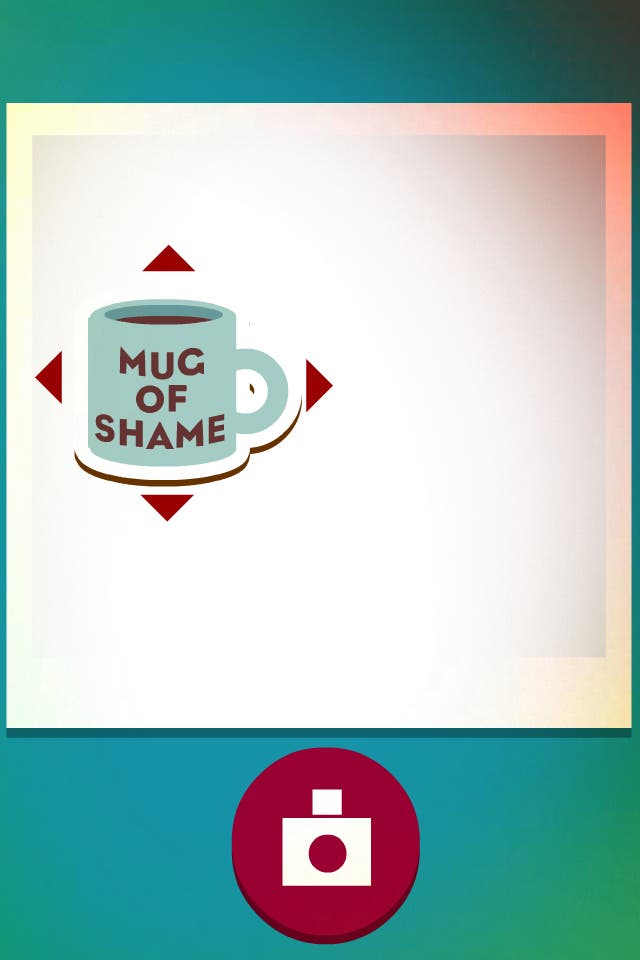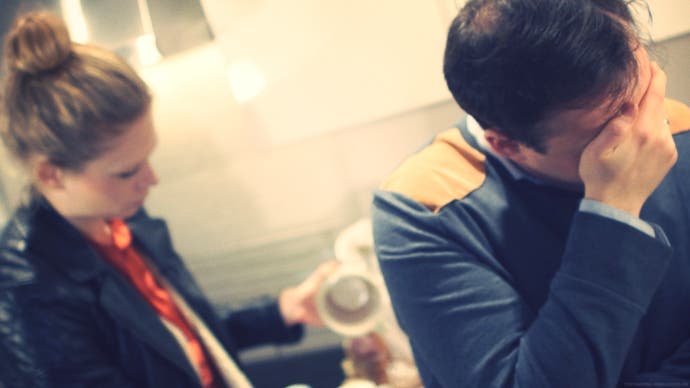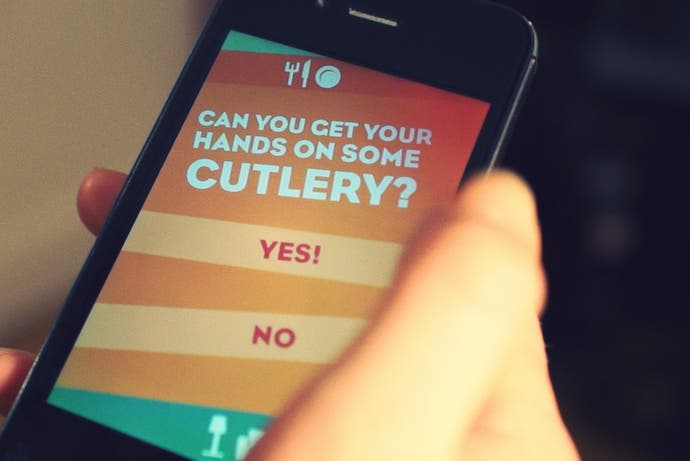All the world's a playground: Tiny Games heads to Kickstarter
Hide&Seek's app brings the spirit of WarioWare to your house, your town, and even your wallet.
Game designers - particularly, you could argue, those who are eyeing up Kickstarter - have always been interested in the money in your pocket, but there's a moment towards the end of the pitch video for Tiny Games when the precise nature of that interest gets a little weird. Sarah Butcher, a producer at Hide&Seek, the company that's making Tiny Games, suddenly grabs a handful of loose change, holds it up to the camera and then asks you to try and guess at the figure it adds up to. Estimating the cash you carry around could be a game, she suggests, and you could grade players on how close they get to the correct answer.
This is all part of the strange business of crowd-sourced fundraising, perhaps, but the moment speaks to something that initially feels vaguely troubling about Hide&Seek's latest project - a project that lands on Kickstarter today. Tiny Games wants to empower you to see the world around you as a source of entertainment: there are games lurking in your kitchen, down your local boozer, or deep in the linty confines of your purse, apparently. Is there a danger, though, of the self-fulfilling prophecy? Is a game designer wandering the world looking for inspiration a bit like a person who's been given a hammer, and discovers that everything suddenly looks like a nail?
"The flipside of that is that when you're a game designer you're keenly aware of the principles and structures that make games games," argues Hide&Seek's managing director Margaret Robertson when I catch up with her on Skype. (Full disclosure: Robertson was the editor of Edge magazine for a while back when I was a contributor, and she's written for Eurogamer in the past, too.) "There are definitely elements within some of Hide&Seek's previous projects that would fail some philosophical definition as games. They're still playful and fun, though. Play is so flexible and so innate that it turns out a ton of things are nails. We definitely are going through the world looking for ways to integrate play, but we have two bits of experience that make us confident. We have a ton of experience of making games for people and then being in the room as they play those games. And then we've also done a ton of game design for weird and difficult places: serious game designs, games designed around really serious topics, games designed around specific locations. We're pretty confident about what structures enable people to have fun."

Tiny Games was born last year when Hide&Seek made 99 games based on the 33 boroughs of London - games which were then plastered all over the city in the form of posters explaining their rules. "Where Tiny Games started, with these really site-specific physically installed places, a lot of what we were thinking about was getting you to understand your context differently," says Robertson. "This flight of steps you walk up every day, we can turn that into something. It can be a raceway or a piano. The buses that you're waiting for can be this timing or scoring mechanism. Things around you suddenly have different or funner utility than they did before we put the games there. We want to give people that sense of connection with their environment."
Now the company's headed to Kickstarter, the idea's evolved somewhat: Tiny Games will be an app - on iOS at first, and on Android if the appropriate stretch goals are met - that will be able to spit out dozens of location-appropriate games as soon as you tell it where you are and what you have to hand. Are you in your house? Can you get hold of some cutlery? Why not play a spin on rock, paper, scissors that contains what Robertson describes as "a light resource management element"? In the park? How about a version of conkers that uses sticks? (If you're in the park, of course, how about a version of conkers that uses conkers?)
Hide&Seek's asking for £25,000, and in return it will be able to build a system that can filter search results intelligently, provide any digital tools you'll need to play its games - stuff like spinners and timers - and even record your best moments for posterity.

The true power of Tiny Games, though, still exists in the real world. "Games do a couple of really powerful social things at once," concludes Robertson. "They give you an excuse to be a slightly different version of yourself, and they give you an excuse to talk to strangers more, to talk to people you wouldn't normally talk to more. It tends to be a really hard hump for people, but there's a ton of research that shows that it's just good for us to have more interaction with a wider group of people. I love the thought that we can make a game where learning the rules takes as long as reading two sentences, and then you know it: it can live in your brain. It just lives there and you can roll it out when the situation presents itself. It's like knowing a really good joke."

